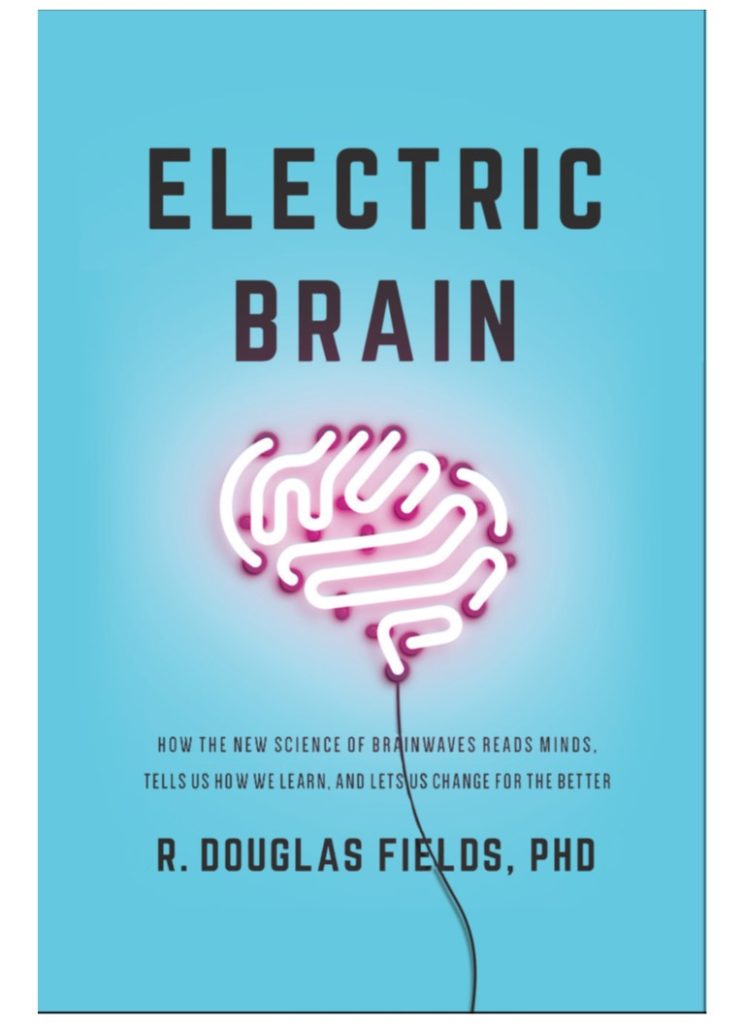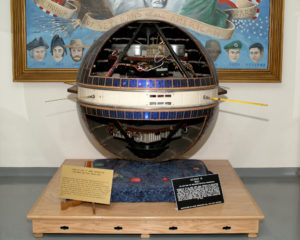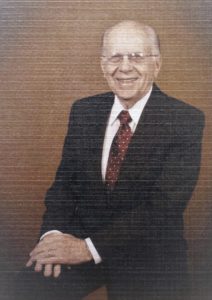Electric Brain–Dedicated to my Father
 After years of toil, typing and revising the manuscript, the day an author first sees their work typeset in the layout design for their new book is always a delight. Reaching that milestone, the effort transcends from intention to tangible. What was especially rewarding when I first saw the layout for my new book, Electric Brain, was the dedication page.
After years of toil, typing and revising the manuscript, the day an author first sees their work typeset in the layout design for their new book is always a delight. Reaching that milestone, the effort transcends from intention to tangible. What was especially rewarding when I first saw the layout for my new book, Electric Brain, was the dedication page.
Dedicated to my father, Richard L. Fields
Dad was, and always will be, an electrical engineer. It was from him that I first learned about electricity. Even before I was old enough to go to kindergarten, he was schooling me in electrons, wire stripping and solder. We built electromagnets, putting the magic, mystical force of nature at the control of a child’s fingers. We wired light circuits in the house, made electric motors, and crystal radios for fun, and played with his ham radio—radio waves yet another dazzling dimension of electricity. When I became a biologist with an interest in the nervous system, Dad’s lessons and expertise in electricity and electronics continued to serve me. So it is most fitting that this book about the discovery of electricity in the brain and the transformative new research on brainwaves, which is revolutionizing our understanding of how the brain works, should be dedicated to my father.
When we were children, Dad taught my brother and me that the frightening and deadly electricity lurking inside the wall sockets could leap out and shock you to death, but if you knew how, electricity could be managed safely. Demonstrating while peering into the buzzing electrical circuit panel in our house, Dad showed us how he is careful when reaching into a hot electrical device surging with current, to use only one hand. If you use two hands, he warned, the electricity would zip in through one hand and pass through your heart while completing the circuit through your other hand. The muscles in your hand would clench shut and you would not be able to let go. The electricity would trap you, burn through your heart and kill you instantly. Electricity always seeks a path to ground, he told us to our surprise, so if you could insulate your feet from contact with the ground, with rubber boots, for example, the deadly force could not get you. That’s why birds perched on high voltage electrical lines are perfectly safe.
My brother and I absorbed the lessons, and naturally, we began to practice what we had leaned. The 120 volt night light on our bed had faulty wiring, we discovered. If you touched the frayed wire on the defective switch with only one finger you would experience a jolting electrical shock that vibrated your hand and hurt badly, but you did not die. And so, very much impressed, we took turns shocking ourselves, always careful to use only one hand. We dazzled our friends by displaying our superpowers against the terrifying danger that all young kids are taught to never touch. Those superpowers had been passed on to us and we were impervious.
(At this point a disclaimer is in order. As a firm believer in natural selection I would like to invite anyone foolhardy enough to deliberately stick their fingers into electrical sockets and such, to go ahead and do it, but no. Don’t try this at home! You know electricity can kill you. As a father of three children who are now grown, I too have experienced how my best-intentioned lessons and fatherly advice can backfire in ways I could never have imagined. In parenting we do the best we can, but we are, by our circumstance, winging it. Sorry, Dad, but thanks. I never reach into anything electrical with two hands, and the credit is all yours.)
Engineers are by nature and training, precise. Dad was the best copyeditor I have ever seen. He could spell anything. I almost hated to have him read my schoolwork because he would always find spelling and grammatical errors, but the text copyedited by him was always perfect. Yeah, I didn’t get that gene.
Another thing about engineers, which is true for my Dad, is that their precision and organization extends to their environment. Dad is one of those people whose office and garage workshop were hospital tidy, organized, and clean. Me, well, I’ve always wallowed in an environment cluttered with unfinished projects, books, papers, science journals, and articles ranging from biological specimen to bank records, littering the floor and every horizontal surface like mulch. The tidy gene didn’t make it to my half when Dad’s chromosomes split to combine with Mom’s in creating the blueprint of my cells.
But an even more vital character of an engineer is their absolute confidence and belief that they can build or do anything. For Dad, that ranged from designing and building the radio for America’s first communication satellite, the Courier, to building me an electric guitar amp when I was a teenager. I got that gene. In essence the job of a scientist is to do something that no one else has ever done before, and to do it repeatedly for your entire life. To be a scientist you have to believe that you can do the impossible, and then do it. That peculiar trait is ingrained at the core of my identity, and I trace it to Dad and in a double dose to my Mom.
Dad was born in 1930 and his father died suddenly when he was 13. He grew up in the small western town of Lander, Wyoming, and he had to assume the responsibilities and independence of adulthood at an early age living with his mom in their small apartment. The street in front of the apartment house was still dirt when we visited there on family vacations. His aspirations and abilities outstripped the isolated rural town, and he joined the Navy so that he could attend college on the GI Bill, and study electrical engineering at the University of Utah. While in the Navy, he became a radio operator on a Naval destroyer, and he was in several major battles in the Korean war. Dad never talked about the battles, but he told us a true story of an incident in the Navy which, except for an accident of fate, would have meant that I would not be here today.
Dad was swept overboard once when the ship was struggling in a severe storm that sent mountainous waves blasting over the decks. Everyone was ordered below, but Dad, thinking he might get a nice photograph of the waves crashing over the ship, snuck up on deck to do the impossible. Somehow, after being swept down the deck and over the stern, he grasped the railing as the fantail rose steeply out of the water with him drenched and hanging from the bucking and shuddering ship high above the angry trough of the receding wave. The ship’s bow pitched up and scaled the rising mountain of water. The enormous wave surging beneath Dad’s flailing feet rose and flooding back, and pushed him up onto the deck, tumbling him like dead seaweed. He scurried back to his bunk with a ruined camera and a lesson to tell someday, with a cockeyed black-and-white water spotted snapshot of the ship’s flooded deck to prove it.
Dad is now struggling with a serious and painful illness. He continues to amaze his doctors and all of us with his navy SEAL attitude facing down adversity with unflinching commitment and valiant courage. Even as I am now a grown man and father, Dad is still teaching me how to live.

Thank you for your kind words, Doug. It’s satisfying to know I played a small part in your career as a Neuroscientist. I hope everyone enjoys the book. It will always be special for me.
Dad